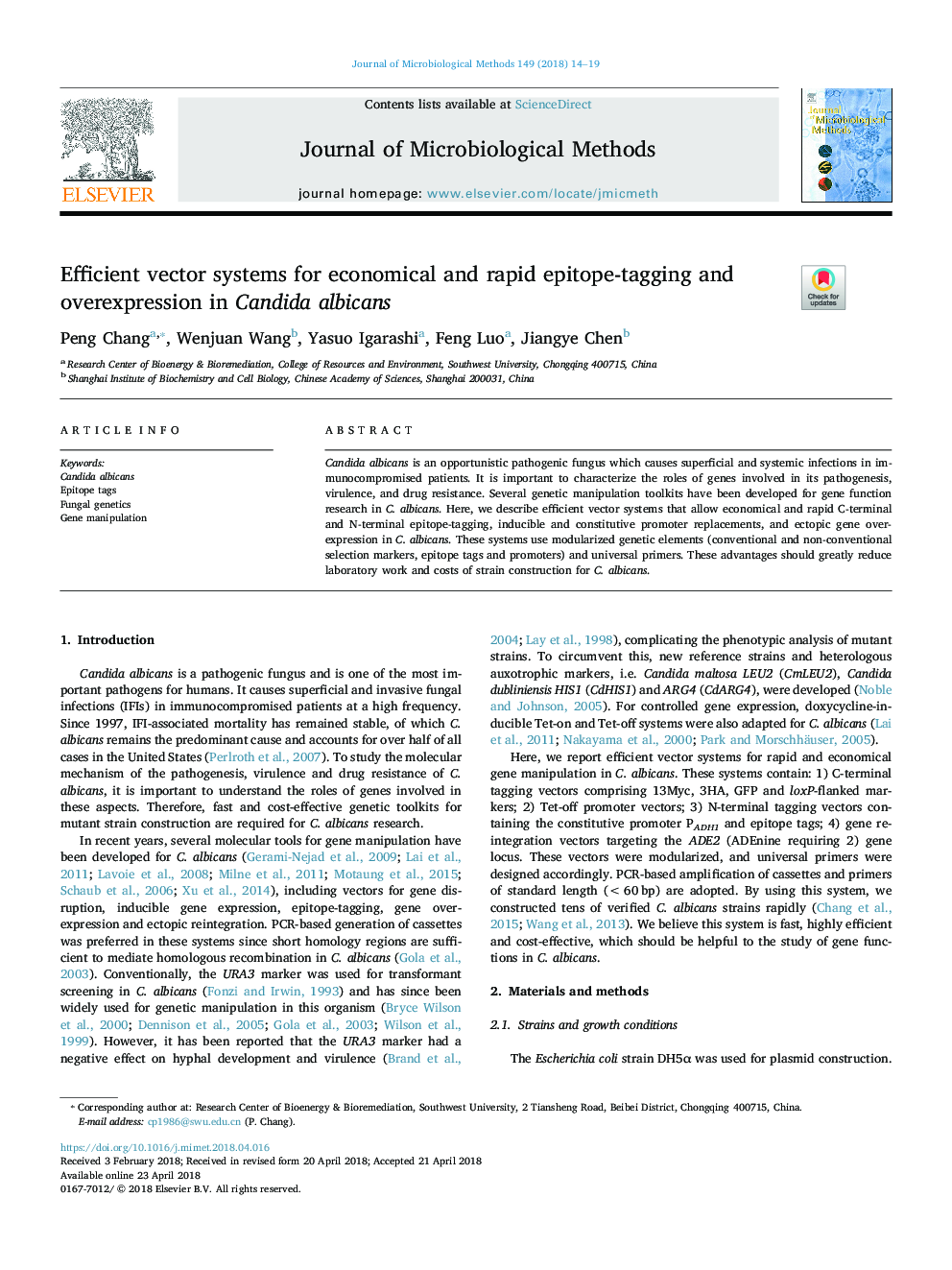| Article ID | Journal | Published Year | Pages | File Type |
|---|---|---|---|---|
| 8420320 | Journal of Microbiological Methods | 2018 | 6 Pages |
Abstract
Candida albicans is an opportunistic pathogenic fungus which causes superficial and systemic infections in immunocompromised patients. It is important to characterize the roles of genes involved in its pathogenesis, virulence, and drug resistance. Several genetic manipulation toolkits have been developed for gene function research in C. albicans. Here, we describe efficient vector systems that allow economical and rapid C-terminal and N-terminal epitope-tagging, inducible and constitutive promoter replacements, and ectopic gene overexpression in C. albicans. These systems use modularized genetic elements (conventional and non-conventional selection markers, epitope tags and promoters) and universal primers. These advantages should greatly reduce laboratory work and costs of strain construction for C. albicans.
Related Topics
Life Sciences
Biochemistry, Genetics and Molecular Biology
Biotechnology
Authors
Peng Chang, Wenjuan Wang, Yasuo Igarashi, Feng Luo, Jiangye Chen,
